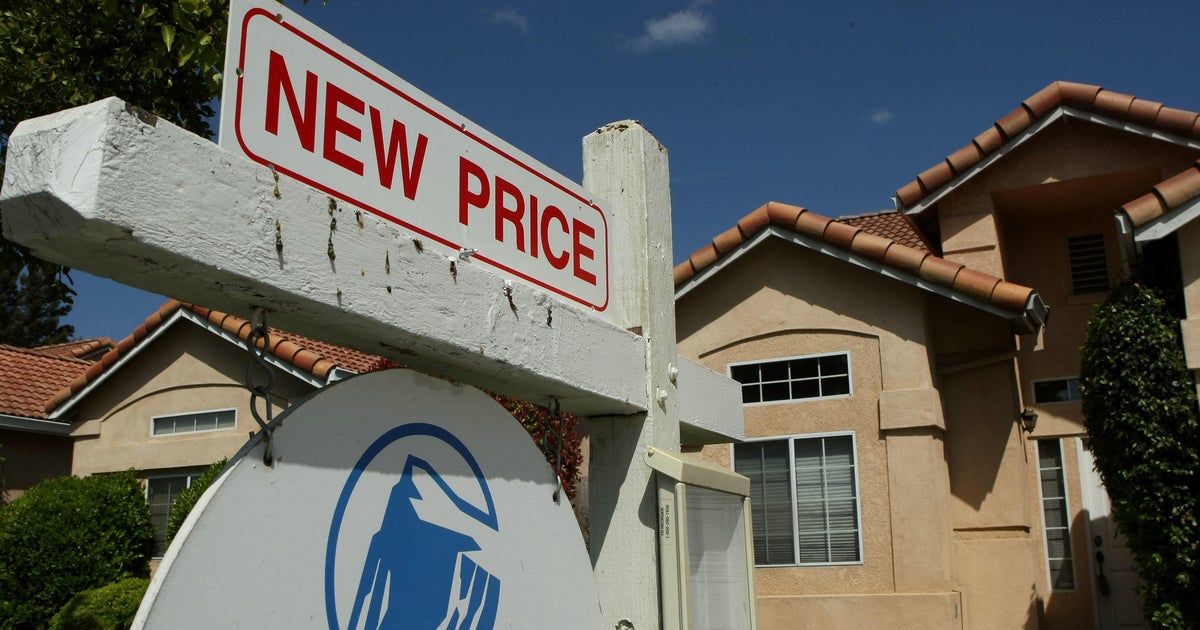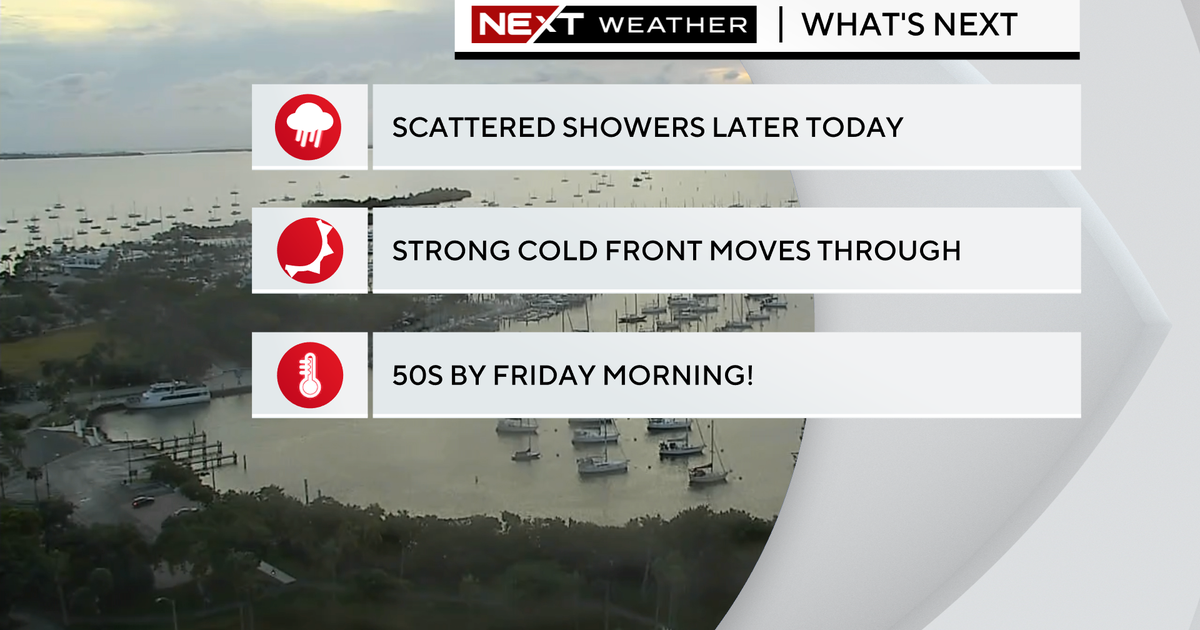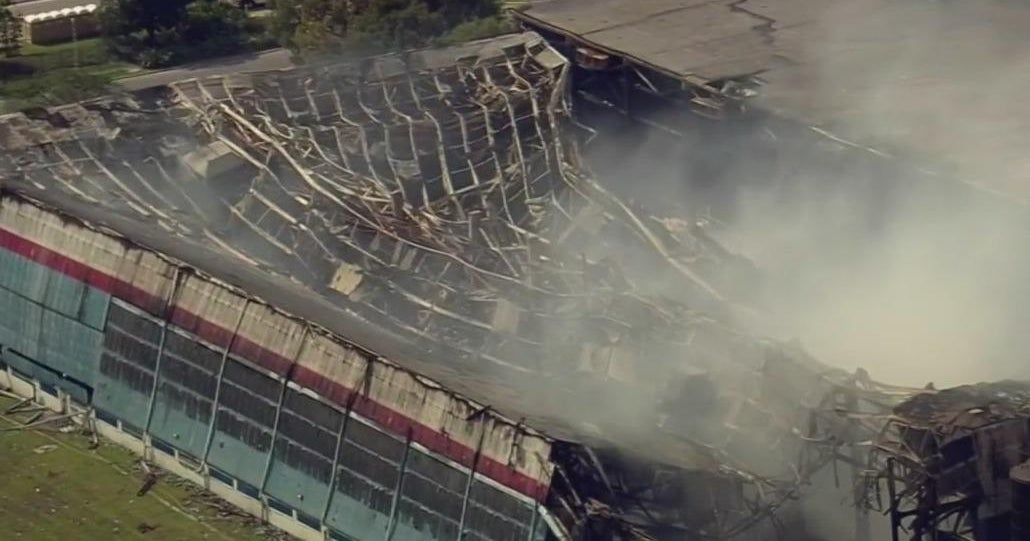The Bizarre Rise Of Miami's Real Estate Market
MIAMI (CBSMiami) - It was just a few years ago we were talking about Downtown Miami's demise. Developers had overbuilt, the economy was tanking and more than 20,000 condos sat unsold. Today many of the condos still sit empty, but they are being sold at top dollar. The bizarre ups and downs of downtown real estate market are odd to say the least. What has happened around it is even stranger.
On Friday afternoon, a boat pushes off from Bayside. Much like any other tourist day trip it's packed with people clutching cameras. Except the tour guide is nothing what you expect.
"It's going to be two hours of non-stop, overwhelming, hopefully useful information," he tells the crowd over an overhead speaker.
CLICK HERE To Watch David Sutta's Report
Peter Zalewski, a fast talking realtor, isn't pointing out Miami's cultural landmarks; he's pointing out condo construction.
"Pre-construction is mostly a smoke and mirror market. You have no idea of what's trading other than what the developer tells you," Zalewski says.
He starts explaining that's where he comes in. What the developer says and what is happening are often two different things. He's there for them to fill the gaps on downtown Miami's real estate craze with real stats and information.
Zalewski has been known to think out of the box. Years ago he pitched foreclosures from a bus. He hawked distressed condos from a cleverly named website, condovultures.com. Now he's hauling buyers and realtors around by boat and selling condos you can't even see.
He points to the skyline and tells his captive audience, "Right now currently there is 17,890 condos planned right over here where we are showing you."
His two-hour tour travels up and down Biscayne Bay. Bikini clad boaters pass by. The skyline looks great against a blue sky. Zalewski points out what has been, what is and what will be.
"Developers put up 22,200 units during the last boom. 40 years prior they built 11,500 units," he explains.
He then quickly shifts from a history lesson to a discussion about the hottest neighborhood in the Miami market currently, Edgewater.
Just north of the downtown corridor, there is really no substantial reason why it's up and coming. But developers and realtors can't stop talking about it.
Developer incentives may play a part in it. The industry created buzz is fueling price hikes and big purchases.
Zalewski fills the crowds in on the latest Edgewater gossip.
"A Russian oligarch has recently acquired an entire block," he says.
As the tour moves south, he points out something a bit less speculative; the cranes near Brickell, Miami's historically financial district.
"Brickell Citi Center is a $1.05 billion dollar project." he says. He explains the history of who's behind the project and how much of a game changer it will be.
According to Zalewski, 35,000 new condos are proposed east of I-95. That includes everything from a blueprint to what's actually being built.
"How do you know what the developers are telling you is real?" he asks CBS4's David Sutta. Sutta nods his head. A few seconds later he concludes it's a trick question. "The answer is you don't know. You have no idea."
It made us wonder just who buys condos that aren't even built. We found the answer inside the Miami Beach Convention Center in August.
Rows of developers were pitching their projects as part of a pre-construction show. Juan Carlos Caceres was pitching one of them.
"Have you guys heard of Centro?" he asks as someone stops to look at materials laid out on his table.
He starts pitching all the selling points of his project.
"You are going to get concrete floors," he tells them.
The buyer leans in with even more interest. Centro, will open up around 2016 in the center of downtown Miami. It starts at $293,000 for a luxury loft. The buyer doesn't flinch.
Caceres touts some of the other benefits, "He built the building without any parking. Great amenities. Wonderful views."
The buyer stops him right there, asking him to repeat the part about the parking; a 500-square-foot box, with concrete floors, without parking. Caceres explains it's actually a great benefit.
"A lot of people don't want to drive. They don't want to have a car payment. They don't want to have an insurance payment," he says.
This type of pitch you would usually hear in New York. But South Florida loves its cars. Surely we wouldn't give that up, for a concrete box?
Sutta asks Caceres about it. He smiles back, "We are about 81-percent sold."
It's confusing times for Miami real estate.
Historically, Miami has been known for its expansive homes in the south. Coral Gables, Pinecrest, Palmetto Bay, Cutler Bay and Homestead provided large single family homes at relatively cheap prices. Residents went north and west for economically priced condos and apartments.
So who's buying these high level condos in the east?
Fernando Arencibia a realtor with Remax didn't even hesitate to answer.
"These high level condos are being purchased by foreign buyers."
"Without a doubt?" Sutta asked him.
"Without a doubt. A majority of the deals are cash. They are really not being built for us, per say. But it is built to satisfy all the demand from all the buyers from Latin America, from Europe, and they are coming from the east," he said.
Outside of the United States, buyers are used to paying for their homes just like you would for a can of soda. There are no mortgages typically. If there is financing it's a very small amount; less than 50 percent. It's perfect for developers and banks that are skittish to get back into the condo financing market.
The pre-construction show has condo after condo project; each more glamorous than the last. Each promising more luxury than you could ever imagine. Armani inspired living spaces, exotic finishes, with a staff that will take care of the groceries. It's real estate's version of lifestyles of the rich and famous. Although you don't have to necessarily be famous.
In the exhibition hall there are only a small amount of buyers in the crowd. A majority of the looky-loos are realtors like Arencibia.
"We are here to catchup, find all the information. Also quite frankly, to check out the competition," he explains.
The buildings are going up so fast the realtors are having trouble keeping track of it all. This pre-construction boom makes it appear as if downtown's once dead real estate scene is thriving.
Zalewski has a perfect explanation for the bizarreness of it all.
"In New York they trade stocks. In Chicago they trade commodities. In Miami we trade condos. This is really a very large condo trading pit," he says.
In other words, like all trades, we are on an upswing.
"Make no mistake this is trading pit. People come here to buy and trade condos. They don't come here to buy and live the American dream with a family of four and dog," Zalewski says.
We're told a majority of these foreign buyers have no plans to live in the units. Most rent it out.
In fact in recent months downtown condo rents have been climbing. That's fueled even more investors to jump in.
So if we are a stock market of condos, does that mean eventually this bubble will burst?
Experienced realtors didn't want to say yes on camera. But they did warn investors are playing a risky game.
Once all these pre-construction condos come to market in 2016 the bubble may pop, again.
RELATED CONTENT:



